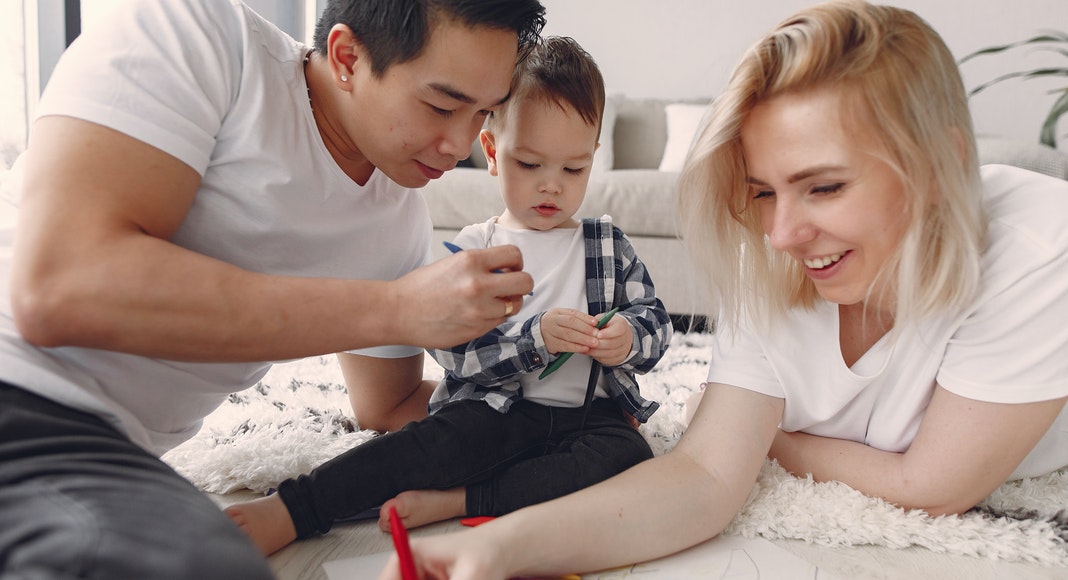 If your child is too young to read a homework assignment or understand what it means to get homework, she is too young for distance learning. Rather than focusing on implementing distance learning for young children, school districts need to reallocate resources and focus on parent coaching.
If your child is too young to read a homework assignment or understand what it means to get homework, she is too young for distance learning. Rather than focusing on implementing distance learning for young children, school districts need to reallocate resources and focus on parent coaching.
Over the past few months, we have become accustomed to the words “distance learning” and “hybrid model”. The focus has been on whether we should do “distance learning”, a “hybrid model”, or “in-person learning.” But we are still not answering one essential question:
Is “distance learning” for young children even possible?
I have spent the past four months considering this question, both as the mother of a three-year-old and a five-year-old who attend school in Pacifica, California and as the Director of an Early Intervention and Inclusion program at a non-profit in San Francisco, serving low-income families across four childcare sites. At work, I spent the past four months helping to implement a “distance learning” curriculum for preschoolers. Simultaneously (literally) I attempted to implement “distance learning” for my own young children. Here’s what I found:
Distance learning is not an effective way to engage young children.
Teachers did the best they could. My daughter’s Transitional Kindergarten teacher sent a homeschool calendar with activities we either completed in ten minutes or completely ignored. My son’s preschool scheduled weekly Zoom meetings. We attended the first one, where confused three-year-olds popped on and off the screen before disappearing from view all together. At work, our teachers filmed themselves identifying colors. Only a few of our program’s families watched these well-intentioned videos. The videos were cute, but less engaging than Daniel Tiger or any educational content created by PBS kids. Why ask teachers to create this content? They are teachers, not TV producers.
For years leading up to the pandemic, parents were warned about the detriments of too much screen time for young children. Yet during the past four months, my inbox has been inundated with invitations to Zoom Kids Yoga, Virtual Learning Academies, Remote Library Story Time, At-home camps and dozens of links to YouTube videos.
Seemingly overnight, the body of research showing that children under six years old learn primarily through tactile, social experiences rather than through passively absorbing content has been tossed aside.
The best video of the best preschool teacher in the world reading a book is still just a video.
Brain research by Dr. Patricia Kuhl has demonstrated that children learn language by being actively engaged in person. The same learning does not occur when young children view the same content through a screen. For all of us, but specifically young children, learning is a social experience.
This is not to say that parents should feel guilty about putting their children in front of screens when we need to take a shower, or work from home. Unfortunately, for many of us, screens have become our only childcare option. Luckily, the world is filled with fantastic digital content, created by brilliant, creative artists. We do not need our kindergarten teachers to record themselves reading Llama Llama books. There is a Llama Llama television show that is far more effective. Leave the creation and distribution of children’s digital content to the experts.
What about Zoom meetings for children under six years old? Children hate them. Parents hate them. If you want to torture a parent, set up a Zoom meeting for their child. Young children learn and engage through social, tactile, sensory experiences. Zoom is an important tool for communicating with teachers and parents. Not with young children.
As the pandemic in the United States rages on, how can teachers engage young children when it isn’t safe to reopen our schools? Here’s the simple answer: they shouldn’t. The people in the best position to teach young children stuck at home are the people stuck at home with them: parents.
For our team, the abrupt switch to engaging families from a distance was not all negative. Our program typically provides therapy to children during their school day. Parent involvement is limited to a few home visits, or collateral check-ins per month. As my work team switched to a teletherapy model, we saw something surprising unfold. Our parents were more engaged in treatment.
During teletherapy sessions, our therapists did not engage with their two-year-old clients directly. Instead, they coached parents through play activities with their children. Before and after sessions they talked to parents about what moments of the week had gone well, and what had been the most difficult. Most of the parents receiving this treatment found it invaluable. Many chose to continue such sessions when the option was presented.
Classroom teachers don’t frequently engage in lengthy conversations with parents. Individualized feedback about children is relegated to a few conferences a year, unless the teacher or the parent requests additional conversations. Before the pandemic, I had only sat down once with my daughter’s excellent Transitional Kindergarten teacher. The model is essentially: teach the children, tell the parents what we expect from them, check in if there is a problem. Then the pandemic happened.
At the end of the year I received my daughter’s report card. It read: “Hazel met all the skills expected of a Transitional Kindergarten student.” It broke my heart. I wanted my bright, curious five year old to have a personal relationship with her teacher. I wanted her teacher to know her. And to know me.
My son started back at his preschool in early July. At the end of his first week, his teacher stopped me at pick up to say, “Fritz doesn’t like these little cheeses you have been sending. He says they are icky.” That moment of a teacher telling me something personal and specific about my child meant more to me than months of “distance learning”.
Parenting can be lonely in normal times. Parenting during a pandemic has been one of the loneliest experiences of my life. Overnight, parents had the rug swept from under us. Rather than being in community with teachers, other parents, grandparents, aunts and uncles, it was just us and our children. My entire career has been in the field of early childhood. However, I’m not a teacher. Suddenly, I became painfully aware of how little I understood about what I should be teaching my child and how best to teach it.
Young children learn through daily, meaningful experiences with caring adults and with other children.
Their world now has shrunk and for many children, the only people to have in person experiences with them are those in their household. What parents need is help making these daily in-person experiences as meaningful as they can be for our children.
For young children, we need to throw out the phrase “distance learning” and replace it with “parent coaching.”
Teach us how children learn new vowel sounds. Teach us how to scaffold math skills. Show us the secret science of how children learn to spell. Teach me how to be the best Kindergarten teacher for my child. Provide individual check-ins with parents. Build relationships with parents. Give us the opportunity to vent about the specific challenges we are facing in teaching our children. Let us talk about what activities we have tried. Give us ideas about what might work. Until it is safe for schools to reopen for in-person learning, let’s treat parents as if they are the students.
Not all parents have the capacity or time to engage with teachers in this way. “Distance learning” creates huge inequalities in an already inequitable system. Schools need to reallocate resources to provide translation help for parents who need it. Social workers and other mental health professionals should be dispatched to respond to parents who are not engaging in this parent coaching model. As professionals we should ask ourselves, why is this family unresponsive? We can use every tool in our arsenal to follow up with the family and find out what their needs are and why they aren’t responding to the parent coaching model. This can be an opportunity to link families up with necessary community resources. Unemployment, housing, food insecurity, immigration status, these concerns will need to be addressed before the scaffolding of math skills. When a teacher finds that a family is unresponsive, that will flag the need for extra support and social work staff to respond to that need.
Lack of engagement with parents predates COVID-19. We have an opportunity to create a revolutionary model to reframe how we think about educating young children. Let’s not waste our time reading books on camera.
Michelle Kaye, LCSW, is a social worker and a specialist in early childhood and parenting special-needs infants and toddlers. She is the Clinical Director of Child, Youth and Family Services at a nonprofit in San Francisco and mother of Hazel, 5, and Fritz, 3.















